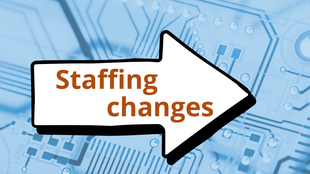
News
If you are a journalist, we look forward to hearing from you. We can keep you updated about labour rights in the global electronics industry.
Press contact: Harriet Edwards hedwards@electronicswatch.org
You can subscribe to our newsletter here.


New agreement with IndustriALL Global strengthens our collaboration with trade unions
Electronics Watch signs a memorandum of understanding with IndustriALL Global Union, which represents over 50 million workers in 130 countries. The collaboration aims to promote and protect workers' rights by leveraging the complementary strength and expertise of both organisations.

Seeds of change for migrant workers in Taiwan’s semiconductor plants
Our latest Impact Story explores the challenges of monitoring in semiconductor factories in Taiwan, and the conditions migrant workers are facing.

The Metropolis of Lyon affiliates to Electronics Watch
The Metropolis of Lyon (France) has affiliated to Electronics Watch, reaffirming its commitment to promote respect for human rights in its electronics supply chains.

Concluding our anniversary year
As we close our 10th anniversary year, we wanted to take a moment to say thank you, and reflect briefly on our end-of-year online event, which brought so many of you together from around the world.

New monitoring partner profile: LRF
In our latest monitoring partner profile, we talk to Hnin Wut Yee, outgoing Director of the Labour Rights Foundation. We discuss the issues facing migrant workers in Thailand and how the partnership with Electronics Watch - and the ElectroPower project - help drive systemic change.

Training in Thailand and Indonesia raises awareness of forced labour
As part of the ElectroPower project, Electronics Watch has delivered training sessions to migrant workers, trade union organisers and civil society representatives in Thailand and Indonesia. Jointly organised with IndustriALL South East Asia, IndustriALL local affiliates, and monitoring partners, the Labour Rights Foundation (LRF) and Inkrispena, the training focused on understanding and addressing forced labour.

First Irish affiliate joins Electronics Watch
The Office of Government Procurement (OGP), responsible for public procurement policy and Central Purchasing Body for ICT products (among other categories) in Ireland, has recently affiliated to Electronics Watch.

Electronics Watch expands affiliation model to include low emission vehicles
Electronics Watch is expanding the scope of its affiliation model to include low emission vehicles (LEV), a major step forward in our efforts to advance responsible public procurement. From January 2026, public buyers will be able to affiliate to Electronics Watch for one or both purchasing categories, electronics and/or automotive.

New case study on LEV market engagement
Read our latest case study, which shares lessons learned from a market engagement event organised as part of the Low Emission Vehicle Programme (LEVP).



